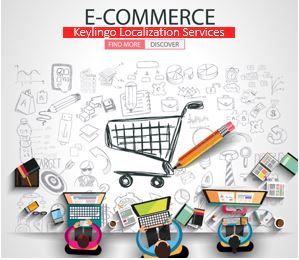
Website Translation Services in an Increasingly Global World
by Chad Richardson
English is still used more prominently than other languages on the Internet. However, this has been changing for a long time. When it comes to the top ten million websites online, their language use is more varied than people would expect.
The English language usage for these websites is around 51.6 percent, and it is still the language that is used most frequently. However, Russian is the second language on the list, and Japanese is the third. There are 38 other languages used in more than 0.1 percent of these top ten million websites. The Internet is demonstrably becoming multilingual, and that means website translation services will become more important.
The number of websites that will use multiple languages keeps on expanding, and this should be the case. Internet users are certainly not all English speakers. An estimated 277,125,947 Spanish speakers are online. Approximately 26.3 percent of Internet users do use the English language. This means 73.7 percent of Internet users do not. As such, a huge portion of Internet users will rely on a language other than English when reading and searching for website content.
It is notable that the remaining 73.7 percent of Internet users will use a lot of different languages. English, Chinese, and Spanish are used online more frequently than other languages, but otherwise, few languages really dominate.
Businesses need to be prepared for the fact that the people visiting their websites will vary substantially in terms of what languages they use. Website translation services can help businesses in all fields appeal to a wider range of potential customers. Plus, it’s important to note that consumers are 75% more likely to purchase if the content is in their native language.
Contact us in order to learn more about website translation services.
Related Articles
Why Hyper-Localization and Personalization Are Defining Global Success
Translating content is no longer the benchmark for going global; it’s the baseline. As businesses expand into new markets, what truly drives growth in 2025 is the ability to connect meaningfully with audiences through hyper-localization and personalization. These strategies are redefining how brands communicate. Hyper-localization adapts your message to reflect not just a language,…
AI-Powered LQA and Human Review: The Smartest Way to Scale Localization
Every multilingual project begins with ambition: the ambition to connect, to scale, and to meet global audiences where they are. But ambition often collides with the reality of manual language review processes that strain valuable resources. This friction delays launches and diminishes the agility brands need to thrive internationally. The answer is not replacing people…
Connecting Through Language: Why Global Brands Are Investing in Multilingual Video
In today’s digital world, attention is the most valuable currency—and it’s increasingly multilingual. For brands expanding across borders, creating content that resonates globally isn’t just a competitive advantage; it’s a business necessity. Whether you’re onboarding a workforce, educating customers, or entertaining the masses, your audience expects more than a translated script. They expect localized video…
here
for you
We’d love to learn more about your translation and localization needs.